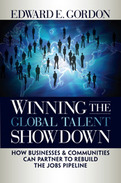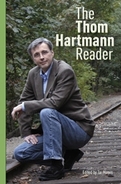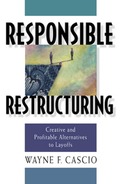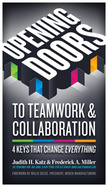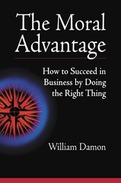• Exposes the root causes of the coming talent crisis facing America, Asia, and Europe
• Shows how we can prevent the crisis by reinventing the education-to-employment system
• Includes dozens of examples of how this is already being done across America and around the world
In the next few years the world will be facing a huge talent shortage. Demographic trends in America, Europe, Russia, and Japan are reducing the pool of new workers. As the need for talent grows, China’s and India’s educational systems won’t be able to produce enough qualified graduates for themselves, let alone the rest of the world. But the heart of the problem is that the education-to-employment system worldwide is badly outmoded. We’re not producing graduates with the kinds of technical, communications, and thinking skills needed in the 21st century.
In Winning the Global Talent Showdown, Ed Gordon surveys the sorry state of the world talent pipeline, with separate chapters on the Americas, Asia, and Europe. Each region faces its own challenges, yet the result is the same: a dramatic shortage of workers who can function in what Gordon calls our “cyber-mental” age.
But this is fundamentally a book about solutions. Gordon argues that we need to completely reinvent our talent-creation system—and some pioneering efforts are already underway. He describes dozens of “gateways to the future,” innovative partnerships in which local governments, schools, businesses, labor unions, parents, training organizations, community activists, and others are collaborating to develop completely new approaches to education. Based on personal experience, Gordon outlines how concerned citizens can establish these partnerships in their own communities. And he looks down the road to 2020, explaining how we can build on the best of these new ideas so that the jobs pipeline flows freely again.
The first book to offer a comprehensive overview of Hartmann's thoughts-the breadth will surprise even longtime fans
Hartmann is perhaps best known for his fierce commitment to Jeffersonian democracy and his steadfast opposition to the corporatization of America. But in these pages you’ll also discover his Older and Younger Cultures hypothesis, which identifies the root cause of so many of our social and environmental ills. You’ll hear from Hartmann on how to keep our schools from treating children like assembly line products, why attention deficit disorder is not an affliction, what cloudy Germany can teach us about solar energy, and much more. Fascinating as these essays are, they’re ultimately meant to inspire you to action. As Hartmann says at the end of every radio program, “Get out there, get active! Tag, you’re it!”
- By the New York Times bestselling author and number one progressive radio talk show host
- The first book to offer a comprehensive overview of Hartmanns thoughtthe breadth will surprise even longtime fans
- Touches on an extraordinary variety of subjects: politics, history, psychology, ecology, spirituality, and more
Its hard to pigeonhole Thom Hartmann. He has a unique synthesis of qualities not often found in one person: a scholars love of history, a scientists zeal for facts, a visionarys seeking after truth, an explorers appetite for adventure and novelty. In addition to being the nations number one progressive radio host, hes been an ad man, a psychotherapist, a private detective, and a homeopath. His writings encompass politics, history, ecology, psychology, and spirituality, among other subjects.
Even Hartmanns millions of loyal listeners and readers will be amazed at the breadth of his thought as evidenced by The Thom Hartmann Reader. Editor Tai Moses has pulled together Hartmanns writings from a dozen books and other sources to present a comprehensive picture of where Hartmanns wide-ranging intellect has led him over the past thirty years.
Hartmann is perhaps best known as a political thinker, and essays throughout this book expressin his characteristic impassioned and lucid stylehis fierce commitment to Jeffersonian democracy and his virulent opposition to the corporatization of America. But youll also discover his Older and Younger Cultures hypothesis, which identifies the root cause of so many of our social and environmental ills and points the way to a solution. Youll hear from Hartmann on how to keep our schools from treating children like assembly line products, why attention deficit disorder is not an affliction, and what cloudy Germany can teach us about solar energy. Youll meet the remarkable Gottfried Mller, Hartmanns mentor and the founder of the humanitarian organization Salem International. Youll join Hartmann on fact-finding trips to Uganda, Russia, and four-thousand-year-old ruins in Peru.
As fascinating as these and other topics in The Thom Hartmann Reader are, Hartmanns deepest aspiration has always been that his audience do more than just listen or read, that they become active, awakened agents of change. These essays are meant to inspire and motivate, to spur you to take some kind of action. As Hartmann says at the end of every radio program, Get out there, get active! Tag, youre it!
Hazel Henderson provides a survival guide for our ride on the "tiger of change," offering new directions and expanded contexts for creating patterns of operation based on win-win models and a new planetary culture. She provides numerous examples of the new paradigm and outlines concrete steps toward it, including the use of renewable resources and chaos systems theory, the greening of social policy, and the pursuit of sustainable, gender-balanced development.
Hazel Henderson provides a survival guide for our ride on the "tiger of change," offering new directions and expanded contexts for creating patterns of operation based on win-win models and a new planetary culture. She provides numerous examples of the new paradigm and outlines concrete steps toward it, including the use of renewable resources and chaos systems theory, the greening of social policy, and the pursuit of sustainable, gender-balanced development.
- Explodes thirteen myths about the supposed benefits of downsizing
- Details the specific strategies companies such as Charles Schwab, Compaq, Cisco, Motorola, Reflexite, and others used to restructure responsibly
- Includes practical checklists of dos and don'ts for responsible restructuring
Your people might be your organization’s greatest assets, but their interactions with one another are what determine the quality and the quantity of their contributions. Too many neglect this basic truth and fail to create the sense of excitement, energy, and shared mission that occurs when people truly join together.
In this concise, engaging book, Judith Katz and Fred Miller describe four deceptively simple behavioral guidelines that fundamentally change the way people work together:
- Lean into Discomfort: Encourage yourself and others to move beyond comfort zones, speak up, do new things, and grow.
- Listen as an Ally: Work to understand and build on others’ ideas instead of sitting in judgment of them.
- State Your Intent and Intensity: Why make them guess? Let people know how committed you are to your ideas.
- Share Your Street Corners: Actively seek out others’ perspectives to see all sides of the story.
Katz and Miller show exactly how to put each of these behaviors into practice and offer examples demonstrating the extraordinary impact these concepts have had in building greater trust, understanding, and collaboration. This book is for any individual or team from the shop floor to the executive suite in search of higher performance, greater collaboration, and game-changing leaps forward in speed and quality of decision making, problem solving, and the ability to create breakthroughs.
2004
- Examines the many ways that adhering to a personal moral code helps people succeed in business by conferring a "moral advantage"
- Tells compelling stories of real-life business leaders who have achieved great success without compromising-in fact because of-their moral convictions
- Written by the acknowledged leading scholar on moral psychology in this country and perhaps the world today


